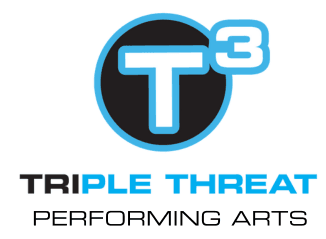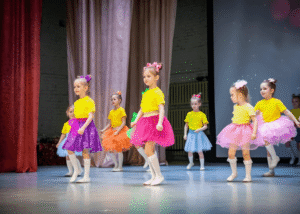Discover how singing improves your social and professional lives. Uncover the transformative power of singing, with positive impacts on communication, confidence, and meaningful connections. Whether expressing joy or overcoming challenges, singing becomes a key to unlocking success in personal and career pursuits. Elevate your journey with the profound benefits of children’s singing lessons, contributing to a harmonious and fulfilling life.
In this article, we’ll explore the role of singing in social and professional life in detail. If you’re a singing enthusiast and looking for result-oriented, top-quality voice lessons in San Diego, you can sign up with T3 TRIPLET THREAT, which offers singing and voice lessons given by PRO instructors with comprehensive training for people belonging to all professions, especially students, athletes, and teenagers.

How singing improves your social and professional lives
There are several ways in which singing can improve different aspects of your social and professional life, such as:
Singing boosts your confidence to build social connections
Singing is considered a universal language bringing people of different communities and cultures together. If you’re a vocalist or singer, you can participate in musical events, like karaoke nights and concerts, to meet like-minded people who share your passion. This can help you build new friendships and make yourself a meaningful member of different social networks.
Singing with other people by synchronizing voices brings a sense of community to the singing group. It also paves the way for fostering social bonding. Recent research shows that group singing is one of the most effective ways to build strong social and emotional connections.
Singing makes you self-confident and raises your self-esteem to help you stand out from your competition in professional life. Developing vocal skills by performing in front of crowds makes it easier to express your talents and convey your thinking to others. Students can confidently leverage their vocal skills to express their opinions to classmates and teachers. Similarly, athletes can use singing as a confidence booster during their performance.


Singing makes you feel happy, relaxed, and comfortable
Researchers believe that vocalizing promotes the release of “happy” and relaxing chemicals, such as dopamine and serotonin, which trigger comfort, relaxation, and joyous feelings in your body. Singing can uplift your mood, by keeping you motivated, and promoting positive feelings, improving your social and professional performance.
It’s believed that when you sing, your blood gets more oxygen due to vocalization, leading to a better mood. Singing is also a good stress reliever. No matter how hard your day is, vocalizing for a few moments can relieve your stress and better prepare you for upcoming activities.
Singing boosts memory
That’s a special benefit of singing for students who need to memorize things regularly. Researchers believe students struggling to remember lessons can use singing to improve their memory. That’s because singing is believed to promote the interaction between different brain areas, leading to better neurological functioning.
Music has various elements, such as pitch, rhythm, and timber. When these elements combine with captivating vocals, it leads to the generation of visual imagery in the brain of the vocalist, through which it can memorize things more easily. Following this concept, students can memorize their lessons more effectively by turning them into vocals and singing them in their free time.
Developing singing skills can improve your overall concentration and attention span. It also enhances your ability and capacity to focus on multiple tasks at a time by bringing more areas of the brain into function. In many countries, singing has become an increasingly popular element of dementia care programs due to its power to spark memories.
Singing offers an excellent way of catharsis
Catharsis, the release of strongly repressed emotions, finds an exceptional outlet through singing. The act of expressing these emotions through vocals, whether in isolation or in front of others, allows for a profound sense of relief. Singing becomes a therapeutic avenue to address and release feelings that may be holding you back, offering a means for these emotions to dissipate from your mind and body. The keyword, catharsis, highlights how singing improves your social and professional lives to achieve inner peace and comfort by allowing the free expression of repressed feelings.
Singing brings discipline and the habit of hard work to your life
Whether you’re a student, athlete, or belong to any other profession, singing can bring discipline to your life. Learning to sing takes time and discipline since you need to practice daily to develop strong vocal skills. Singing, in this way, trains you to be disciplined in your everyday life.
Research shows that students and athletes who sing develop a stronger work ethic, making them perform better than their non-singing counterparts. Many students that engage in singing activities say they acquire stronger abilities to focus on their academics.
Singing promotes teamwork
When a group of students sing together, it promotes a sense of teamwork and collaboration among them. Singing in bands or group events helps students and athletes learn how to work as a team. These life lessons help young people become successful in any profession. They also come to understand they can play a meaningful role in their team’s success. That helps develop their leadership, coordination, and cooperation skills.
Develops communication skills
Singing in front audience helps you master essential communication skills, such as positive body language, eye-to-eye contact, and effective engagement with the crowd. These skills empower you to stay competitive in your professional life.
Singing is a creative way for students and athletes to learn communication skills that can help them in their professional pursuits. For example, a student who is a good singer can do better in academic presentations and interviews as compared to the others. Similarly, an athlete who regularly engages in singing activities can better absorb the pressure of the crowd while performing than non-singing athletes.
Career opportunities
Your professional profile considers singing a valuable extracurricular activity and hobby, recognizing that having strong singing skills aligns with the notion of “How singing improves your social and professional lives.” Organizations and industries increasingly prefer individuals with this unique skill set, understanding the distinct advantages it brings. This emphasis on singing ability can unlock numerous career opportunities.
If you’re eager to pursue a career in the entertainment industry, media, or performing arts, singing skills can be a genuine game changer, distinguishing you from the competition. Understanding how singing improves your social and professional lives becomes particularly relevant as your vocal prowess becomes a distinguishing factor in these competitive fields. Strong vocal skills may secure coveted positions, such as a back-up singer, studio professional, or show singer, showcasing the profound impact that singing can have on shaping your professional trajectory.
Conclusion
To sum up, singing can bring a lot of positive changes in your social and professional life. It has the potential to make you an icon in your profession. Therefore, Get Ready to explore your singing potential with voice lessons in San Diego from T3 TRIPLET THREAT because that’s the place where you will learn vocal skills from professional and seasoned instructors. Sign up at T3 TRIPLET THREAT to join your singing journey Now!


FAQs
How to sign up for voice lessons in San Diego
To sign up for singing lessons in San Diego, you just need to visit the official website of T3 TRIPLET, pick the class you want to take, and agree with the terms of services. The last step will be the payment for your class. Sign up process is straightforward.
How much do voice lessons in San Diego cost?
You will be charged only $100 monthly (1 class a week) for signing lessons. You can also get a discount by paying in advance.
Who can sign up for San Diego voice lessons?
Youth from ages 7 to adult intermediate of ages 18+ can join these singing lessons. In simple words, anyone can learn singing from T3 TRIPLET.




